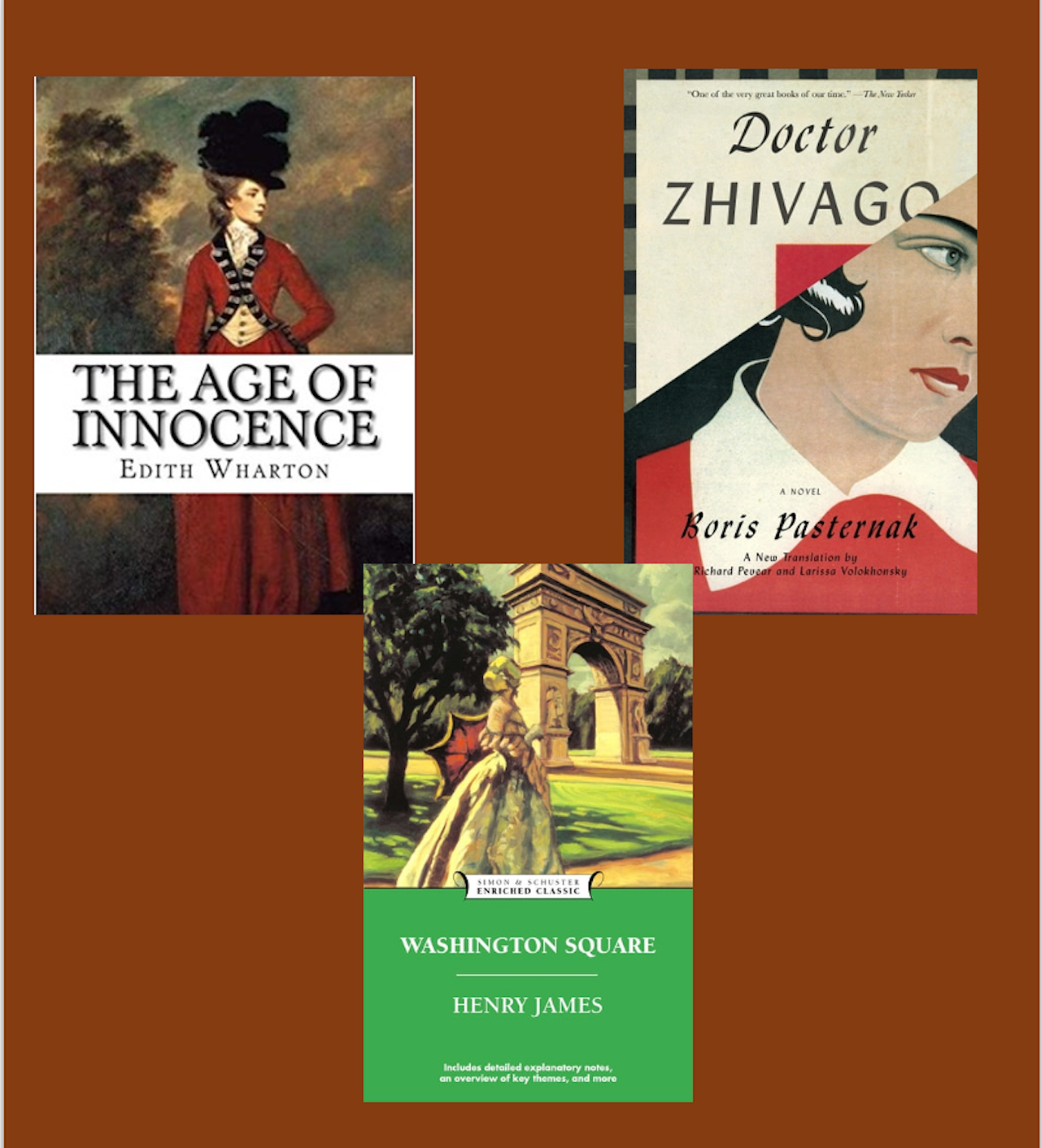I was describing a current work in progress to a friend — stand alone, historical fiction, spanning 50 years — and as I was doing so, I realized I was writing a love story.
It’s not that I haven’t written love stories before. All of my books are stories of losing love, finding love, and all the conflict in between. But in all these stories—all of which are contemporary fiction—there are other elements that keep them light, bright, and gay. There is humor as well as pathos. There may be a lot of trauma and conflict before the hero and heroine get there, but eventually, they do.
But this manuscript is different. It has tremendous darkness and connivance. It has innocence lost. There are misunderstandings that last decades.
Most of all, there is heartbreak.
This story is exactly that: heartbreaking.
And so, for this column, I decided to look at three classics that molded my love of tragic, heartbreaking saga. My advice: first, read the book (or audiobook) before you see any movie version:
Washington Square by Henry James
The Plot: Set in New York against the backdrop of 1880s high society, Washington Square is one of the most beloved novels from master Henry James, and its exploration of interfamily strife and power dynamics, as well as its early take on gender issues, continue to resonate with readers today.
The Heart: Shy, plain, and doomed to be a spinster — at least, according to her pompous, self-serving father, Catherine Sloper does in fact have an 1880’s version of a meet-cute. The courter, Morris Townsend, is new in town. No, he’s not wealthy, but Catherine’s aunt, Lavinia, prompts Catherine to see Morris in the sly, and helps her do so.
The Break: When Morris’s proposal of marriage is denied by Daddy Dearest, Catherine agrees to elope with him. He never shows up.
The Reason You Should Read It: How she gets her revenge is the cruelest cut of all—not for her, but for these two men in her life.
Age of Innocence: by Edith Wharton
The Plot: Also set in New York’s Gilded Age, this novel follows the old-family well-connected young lawyer, Newland Archer, whose engagement to young, beautiful but insipid May Weiland goes sideways when he meets her cousin, Countess Ellen Olenski. Considered by New York gossips to be the youngest lamb within the Weiland family’s European black sheep, in truth she is in a brutal, loveless marriage.
The Heart: Learning of her plight, Newland sees himself as Ellen’s knight in shining armor, and advocates for divorce from the odious count. (Great word, “odious,” eh?) Not only that, he’s willing to throw over May for Ellen.
The Break: As do most brash young men, Newland makes no bones about what’s on his mind—which, to the delight of generations of readers, is the Countess’s plight. Ergo, his yearning for his fiancée’s scandalous relative is all too obvious to everyone they know. (That being all 400 of society maven Ward McAllister’s “The Four Hundred.”) But the countess knows that breaking up her cousin’s engagement plays into the hands of the gossips. She doesn’t have the heart to see if Newland is strong enough to withstand their nasty verbal slings and arrows.
The Reason You Should Read It: Beautifully written, it easily transports you into the long-gone world of those who settled New York and thrived, making it their feifdom—until they were usurped by new-money millionaires, much of which were ill-gotten gains. It truly was survival of the fittest. Newland finds this out decades later... when he has the chance to visit is long-lost love.
Doctor Zhivago, by Boris Pasternak
The Plot: War (the Russian Civil War and World War I) and love upend the life of a married doctor—Yuri, whose poetry is viewed as antagonistic to the Communist cause—and the love of his life, Lara is another man’s mistress.
The Heart: At first, it separates the lovers. Though allowed to hide out in the rural mountains, what little time they have together is intermittent until their lives are permanently torn asunder by Russia’s warring factions.
Break: Glimpsing Lara from a streetcar, Yuri dies of a heart attack, never knowing she had his child: a daughter.
The Reason You Should Read It: This beautifully written saga weaves people, places, and the Russian Revolution’s historical events into an intricate tapestry of love and loss. Unlike the other two novels, the tragedy is mortal, so yeah, have a hanky handy.
Will my novel be someone else’s heart-breaking classic? Only time will tell.
In any event, it’s a story I have to tell. And I cried many times writing it.
Someday, I hope you will too.



Comments ()